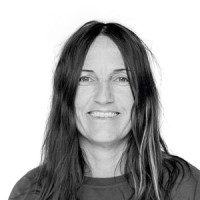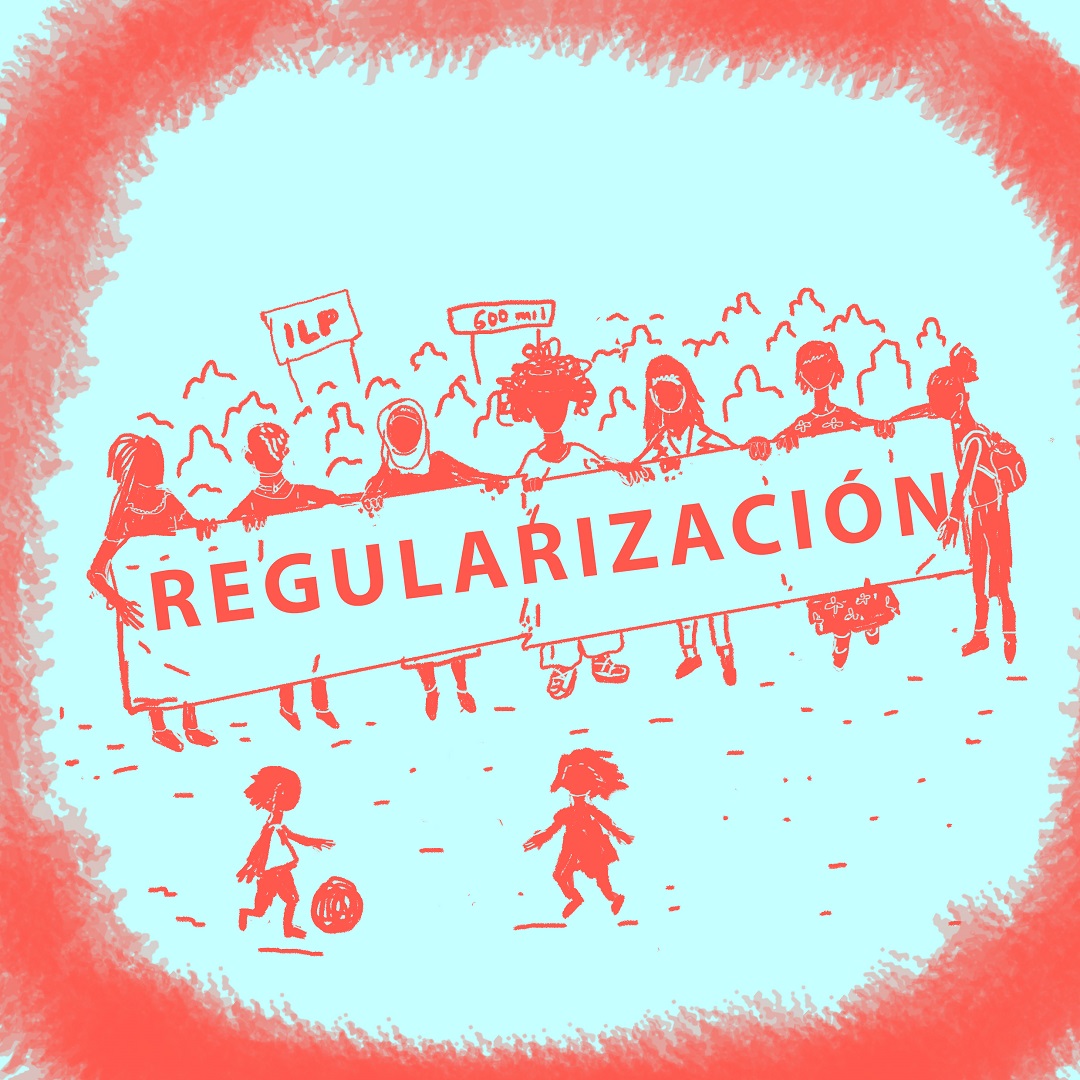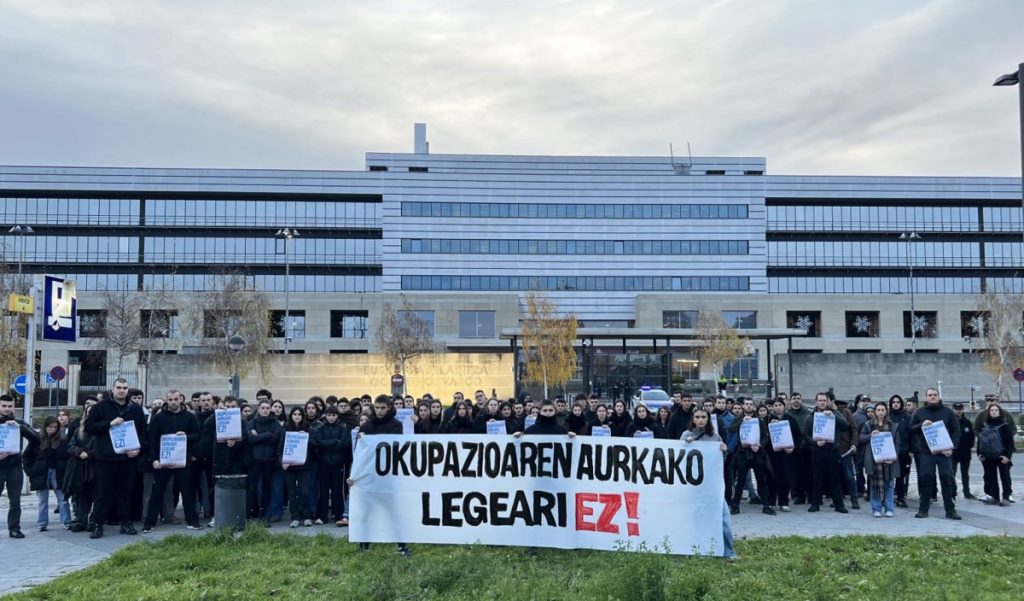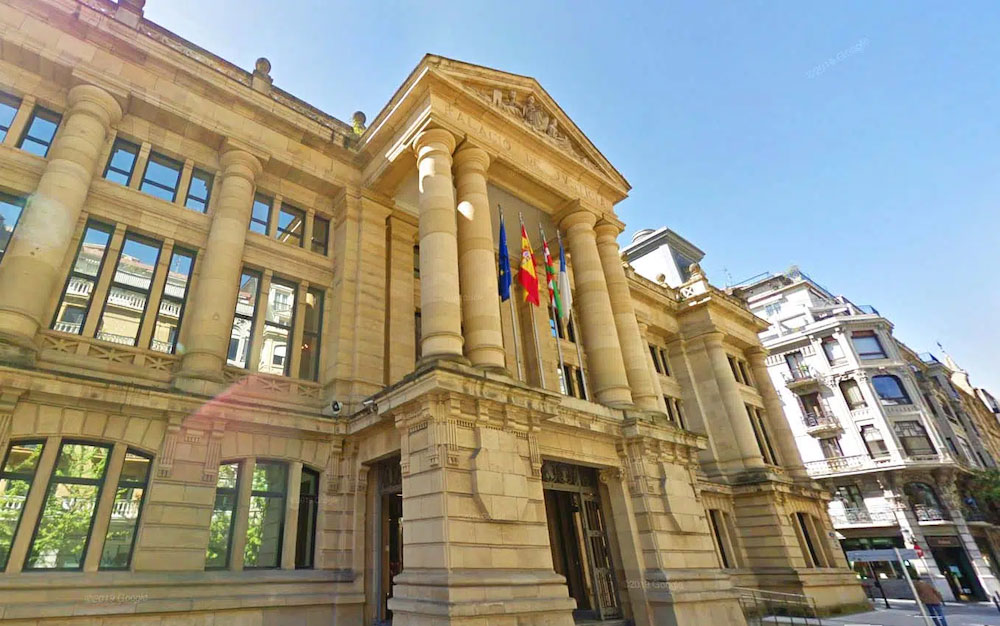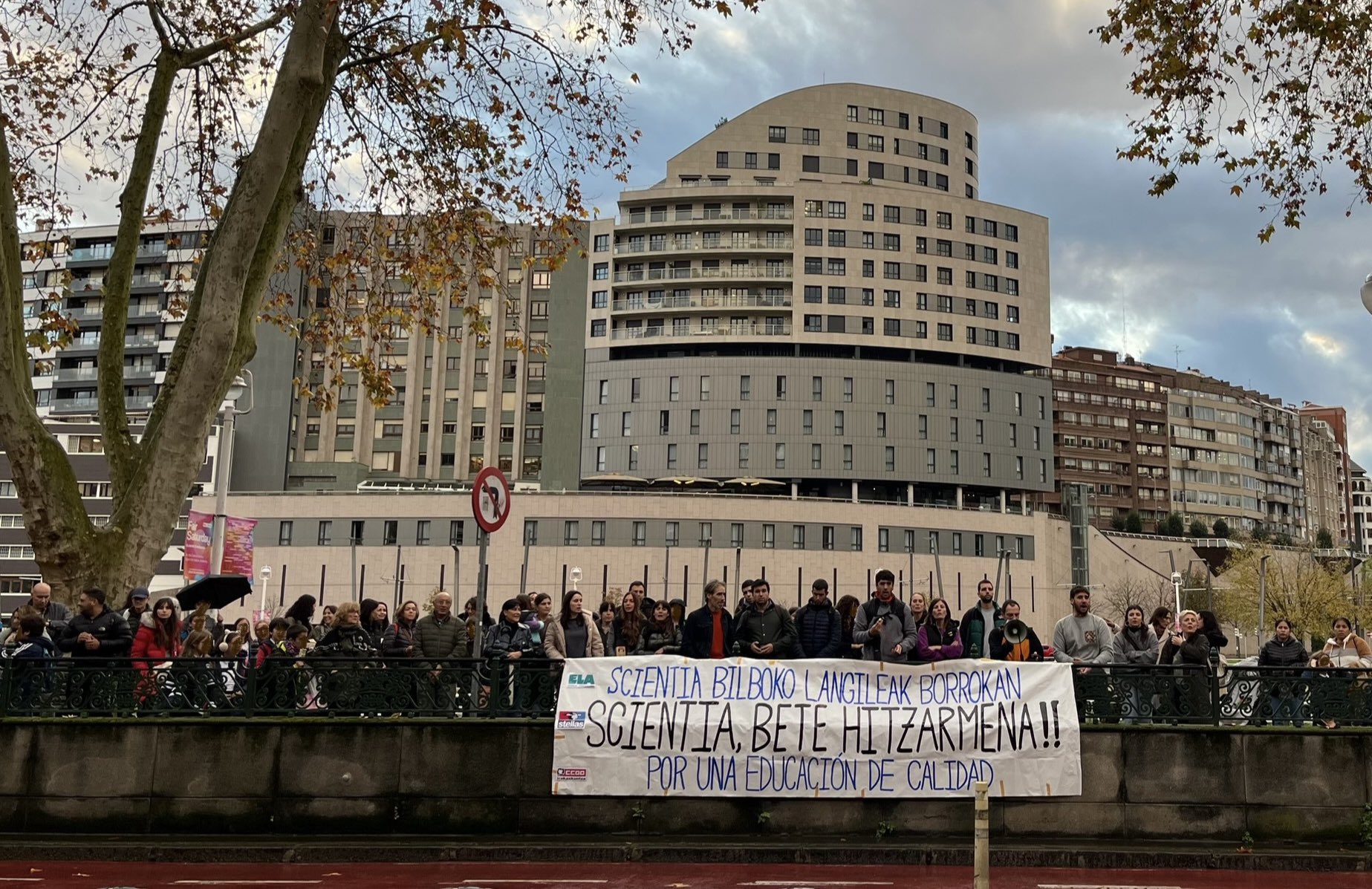"I was born here and they took me."
- Urdiain’s “La Urdintarra” mill has been operating alongside the river since the 17th century, until it recently stopped spinning. They first wet grains and then they create electricity. Josefina Iriberri was born, raised and lived there. She continued to watch with her husband until the water stopped flowing.

“The Urdintarra.” This is called the mill found in the town of Urdiain, although the principal was from Etxarri. Josefina Iriberri has lived her entire life in the village. He was born in 1933 and has lived there until now. However, it seems that little time has passed, as it tells the stories lived and seen in the mill, as if they had happened yesterday. She is a woman full of anecdotes and experiences that she is eager to tell.
The mill is not located in the same town, but close to the area of Ubeldarrain. It has logic because being a mill, it needs water to get it going. Josefina easily counts how the machine works: “It has two stones, one on top and one on underneath. The one at the bottom, ‘solera’, is standing, does not turn; the one at the top is ‘flying’, which moves.”
However, it takes something for the stone at the top to spin around, and that equation enters the water. The water passed underneath the room where the millstones were found, “with great strength”, as Josefina says. This water revolved around the turn underneath the house, which in turn drove the stone of the ‘floater’. The grain placed between the two stones was thus molded. In the last years of operation, barley was the main ground, but it was not the only product. Maize was another issue, “to be able to eat stalks when there was misery.” And finally, they also wet the wheat in “The Urdintarra.” Each of the grains had their two stones so as not to mix, and once they were crushed, the obtained products were collected in the boxes. Josephine says barley stones and wheat are a little smaller and maize thicker, because it is “harder” to crush corn grain.
It was born there, but the mill has not always been yours. In fact, the boss was Etxarri, or at least it was. According to Josefina, the really wealthy woman was the woman of the owner of Etxarri, who was from Urdiain. Hence the name, and they were paid the rent every month, part of their profits: “They paid 200 pesetas a month. It was a fortune at the time. And it wasn’t just for living, but they took care of the whole farmhouse and the mill.”
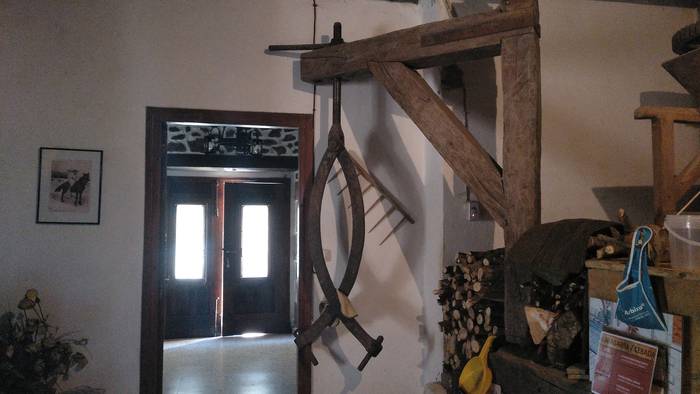
There she has lived her whole life and Josefina has worked there, and it was not an easy task. At the age of 12, she began to wear bags of corn, wheat and barley on her back, and to help in the mill. “And my father was already working at the Iturmendi mill for 8 years,” says Josefina. They didn't grow corn, wheat or barley, but they brought it from the outside. The horseshoes can be seen on the exterior wall of the farmhouse. “There they tied the donkeys and the horses. Otherwise, people came from Altsasu with their bags on their backs,” Josefina said.
In fact, about some clients of Altsasu, Josefina has tenderly an anecdote. A few years ago they came from Altsasu to thank him: “They came not long ago. A woman from Altsasu told her children that she was dying: ‘Go and thank the Urdiain Mill.’ His children told him that our mother had already died, but they came anyway.” Josefina clearly states: “Our mother was very brave, very good.” On one occasion, for example, another client took bags to grind the grain bags in the mill, but along the way, the donkey carrying the cart was frightened and the bags fell to the ground. “The corn grains were dirty, but yet my mother accepted them,” says Urdiain’s neighbor. This client married later and went to live in Pamplona, but he came every year to visit the mill until his death.
Josephine has nothing but good words about her mother, and in her words there is great admiration. Among many other things, she talks about money when she remembers her mother's behavior. In fact, they went through difficult times. The “La Urdintarra” mill and Josefina themselves have witnessed what has happened over the years. Remember the perils of the 36th War. “At that time there was a lot of misery,” he says. Altsasu's wife told her daughter, “The mill gave us money or no money, it didn’t care.” Josefina says that there are now also “misery everywhere” and that the coronavirus pandemic has put “chaos” in the world. But he adds that at the time they were also difficult times. “If you took 40 kilos, you would charge about 20 cents per grinder.” However, if there was no money, it was also paid with a part of the ground grain, if there was no other.
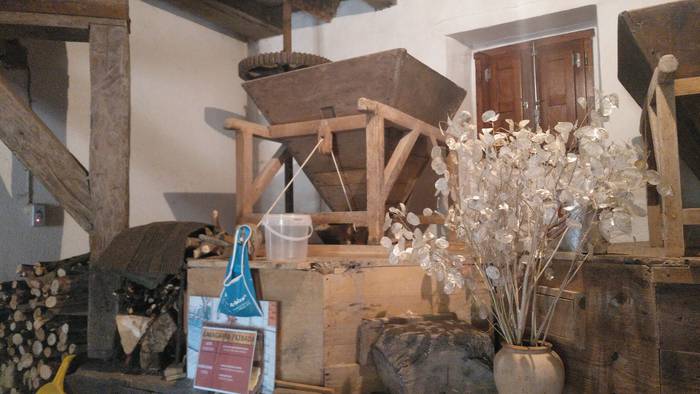
Multi-purpose building
Josefina’s father came to “La Urdintarra” at 4 years old, along with his family. Some of them worked in the mill, grinding grains. But it wasn't the only function the house had, let alone. Josefina remembers that some of her peers started taking care of the garden, which was a botanical garden: “There were trees of all kinds, thousands of flowers, many species… all the space was incredibly nice.” These trees and gardens were preserved and Josefina has not been admired by the plants. You notice when you talk about the orchard. For him it is not a job, because he works the land at ease. Cultivate plants and vegetables, and spin around easily to see if they bear fruit. “People tell me it’s a great effort, but I do it very willingly, time has passed.”
If two functions were few, the Urdiain mill had a third: electricity generation. The mill itself is older; the building has been standing since the 17th century, according to Josefina. But in 1900, a supplement was made to the building, in which a power plant was created. There, they used the power of water to crush the bills, the same way they did to produce electricity and distribute it. The plant supplied electricity not only to the town of Urdiain, but also to the houses of Iturmendi and Bakaiku. “The light that was generated was very small, not like the light that is produced today.”
The power plant, at least seen from the outside, does not seem to be. A son of Josephine takes care of horses and that's where people are going to ride horseback. Among many of those who attended the appointment, one of them was employed by an electricity company, among others. “What is that about the train station?” he asked Josefina. And he said, “No, it’s a power plant.” The man was astonished. “He asked me if I could enter and when we entered, he was amazed,” Josefina said.
The mill was not the only one in Sakana. According to Josefina, there was also at least one in Alsasua. Despite being a mill in his village, Josefina says that the best customers were those of Altsasua. “All the people of Altsasu lived from agriculture, all who are, and came to us.” According to the Urdiainda, they went to them because their grandfather worked in preserving the stone: “He would kneel on a head and shape the stone and take care of it. If there is a difference when crushing with one stone or another, the result is not the same. It is perceived in quality”.
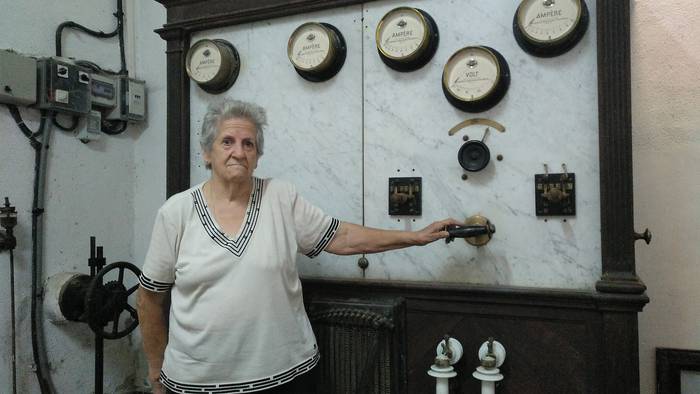
The mill has been so long standing that it has seen and lived many things while it's been going on, things that have happened in history. Among them, the war of 36 and Franco. According to Josefina, poverty. And when she remembered the war, with her, the estraperlo. When he asked Josefina if they were also in the smuggling, he clearly answered: “There was hunger.” They had to eat one way or another. “The sacks that threw us through the train passing through there, filled with wheat. And we didn't have trucks, so we would take them back here," he says. With what had been gathered from there, he fed what he needed.
In fact, Urdiain's wife realizes that in those hard times the mill was closed to them and the millstones were sealed. “People were starving to death, and in the meantime, we couldn’t start the millstone and grind the wheat or corn, even if it was to make stalks.” For the 87-year-old woman, what was happening didn't make any sense. That's why they secretly woven the bags they had thrown out of the train. “On one occasion the civil guards came here, but they didn’t suspect anything,” Josefina says.
Urdiain also recalled the bombing of Gernika. “I remember once they told my father not to give light one night, because they thought they would attack us with the air. Without giving us light, they would not see us.” My father did this. “We all went to bed in the first hour of that day.”
Preferred place
For Josefina, the grain milling process is not just a mechanics. For him, seeing the stone moving “is very nice”. So it was a sad moment when the mill had to stop working. “Water stopped passing,” says Josefina. They had to stop passing the “necessary” elements and stop the process that moved at their expense. “I’d like the water to come back here,” says Josefina. In his opinion, the water from the rivers is not taken care of and it is worthwhile to see the dirt in a place that has been part of his life. “More care needs to be taken,” says Josefina, referring to nature.
Just as the mill had stopped grinding grains, the power plant also stopped producing electricity. “People started buying plates, washing machines, etc. And the amount of electricity we created here couldn't start all those new machines." So they decided to paralyze the power plant. As you enter the center, you explain everything, what every element of the machines does, and Josefina gets the memories. “This is still soft; it could walk right now,” says the urdiain.
Today there is no trace of the botanical garden, instead there is the orchard and the hen. The chickens and the dog fill the place where Josefina lives and the horses give her charm. “I live in a very nice place,” he says.
“Here we live well. I wouldn’t leave here anywhere,” the bacon makes clear. “Even if I say that I have a flat or a house prepared in Pamplona, I would stay here.” In fact, Josefina has spent her whole life living in the Urdiain Miller's house. He says that sometimes, when there are floods, he has felt “fear”, as the flood of the 2019 water left them trapped. In any case, he continues to live there and plans to stay until his death: “I was born here and they take me.”
When the heteropatriarchal capitalist colonial system is questioned and fought, it attacks mercilessly. Using all the tools at your disposal to strengthen, strengthen and consolidate institutional power, media, justice, language, culture, violence...
In Switzerland, where every... [+]
I have always found the way in Spanish to the carriages that can be found here and there: humiliating. Isn't it a pretty light, white name or doesn't it have any connotation? After all, everything that was going on there had to be humiliated. It is known that for the god of... [+]
Many at Christmas feel more lazy than illusion when we think about meals and family gatherings. But we anticipate that it is not food that makes us feel collectively uncomfortable, but the normativity that defines the traditional family. Moreover, we would dare to say that the... [+]
The most magical weeks of the year, or rather, the most consumerist, come. Many would like to receive gifts from Olentzero's bag, as if it fell from the sky, but the reality is that at Christmas it is our bags that suffer the most, we start the year with empty pockets. In the... [+]
Young people start consuming pornography before, as porn is their only sex education. How on earth have we come here?
Today, it has to be acknowledged that thanks to the Internet it is much easier to see pornography. Unfortunately, through a click, the 7-9 year-old boy comes to... [+]












